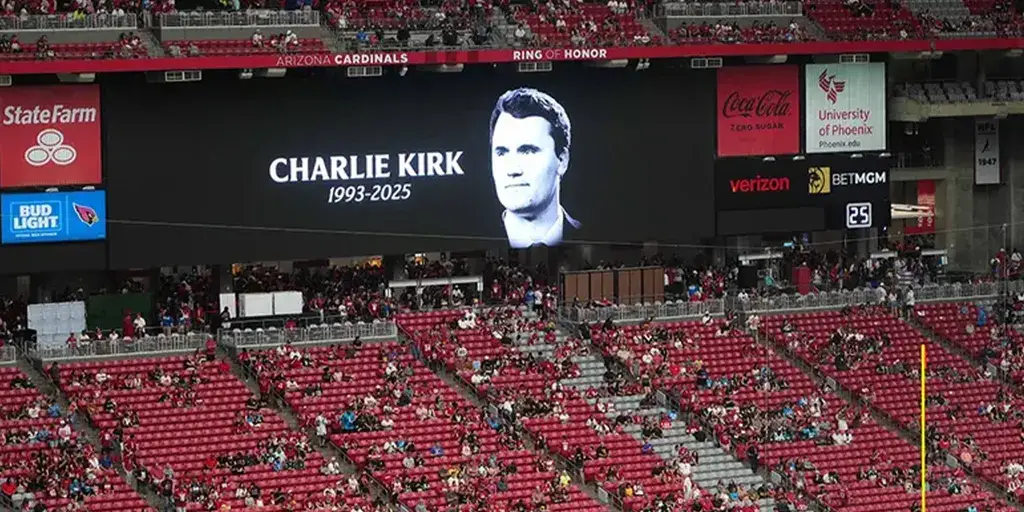On September 21, 2025, tens of thousands of mourners filled State Farm Stadium in Glendale, Arizona, for what became one of the most high-profile memorial services in modern American history. The service for conservative activist Charlie Kirk, who was assassinated less than two weeks earlier, brought together grieving family, loyal supporters, and a roster of political and cultural figures. What unfolded was a day of sorrow, defiance, forgiveness, and even reconciliation — a reflection of both the man being honored and the turbulent political climate he inhabited.
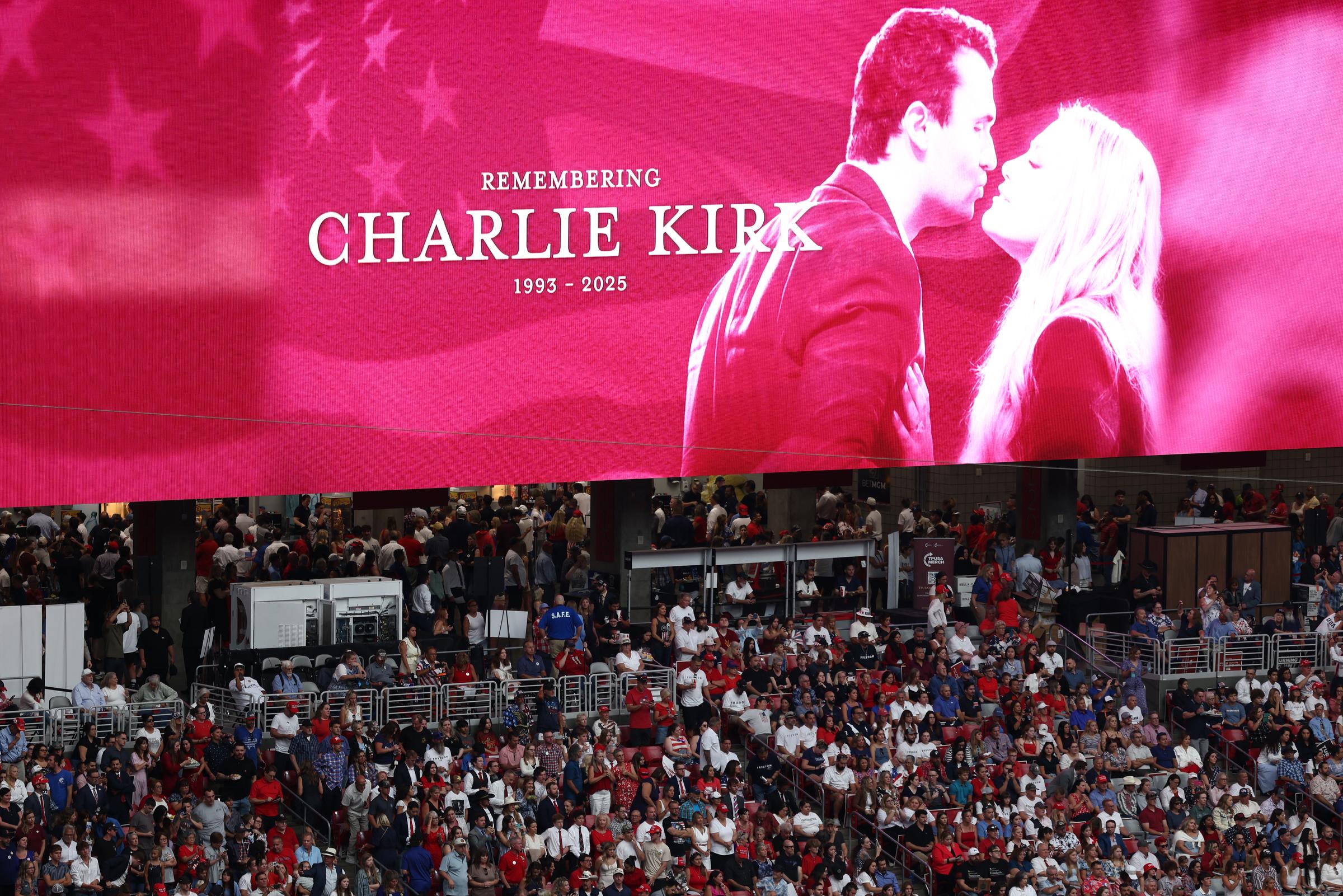
A Life Cut Short

Charlie Kirk, only 31 years old, was fatally shot in the neck on September 10 while speaking at Utah Valley University (UVU) as part of his “American Comeback Tour.” The attack stunned supporters and critics alike, plunging the nation into debate about violence, polarization, and the dangers of public life.
Kirk, who rose to prominence as the founder of Turning Point USA at just 18, had become one of the most recognizable faces of young conservative activism. He commanded vast audiences across college campuses, media platforms, and political rallies. For admirers, he was a bold voice for liberty and faith; for detractors, he was a polarizing provocateur.
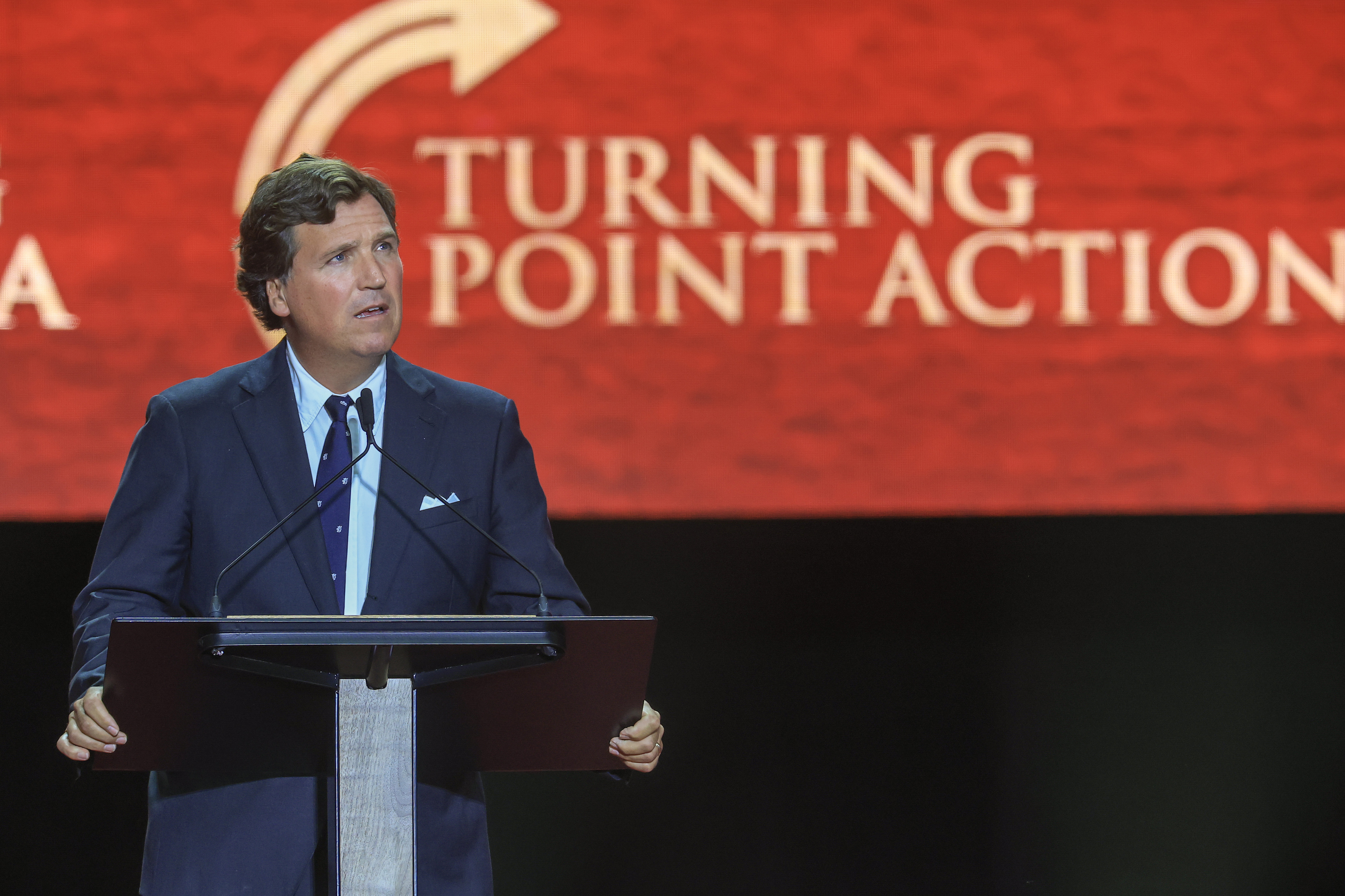
Yet his funeral nine days later transformed into something more than a farewell. It was a national stage for mourning, political messaging, and, unexpectedly, moments of unity.
Security at the Highest Level
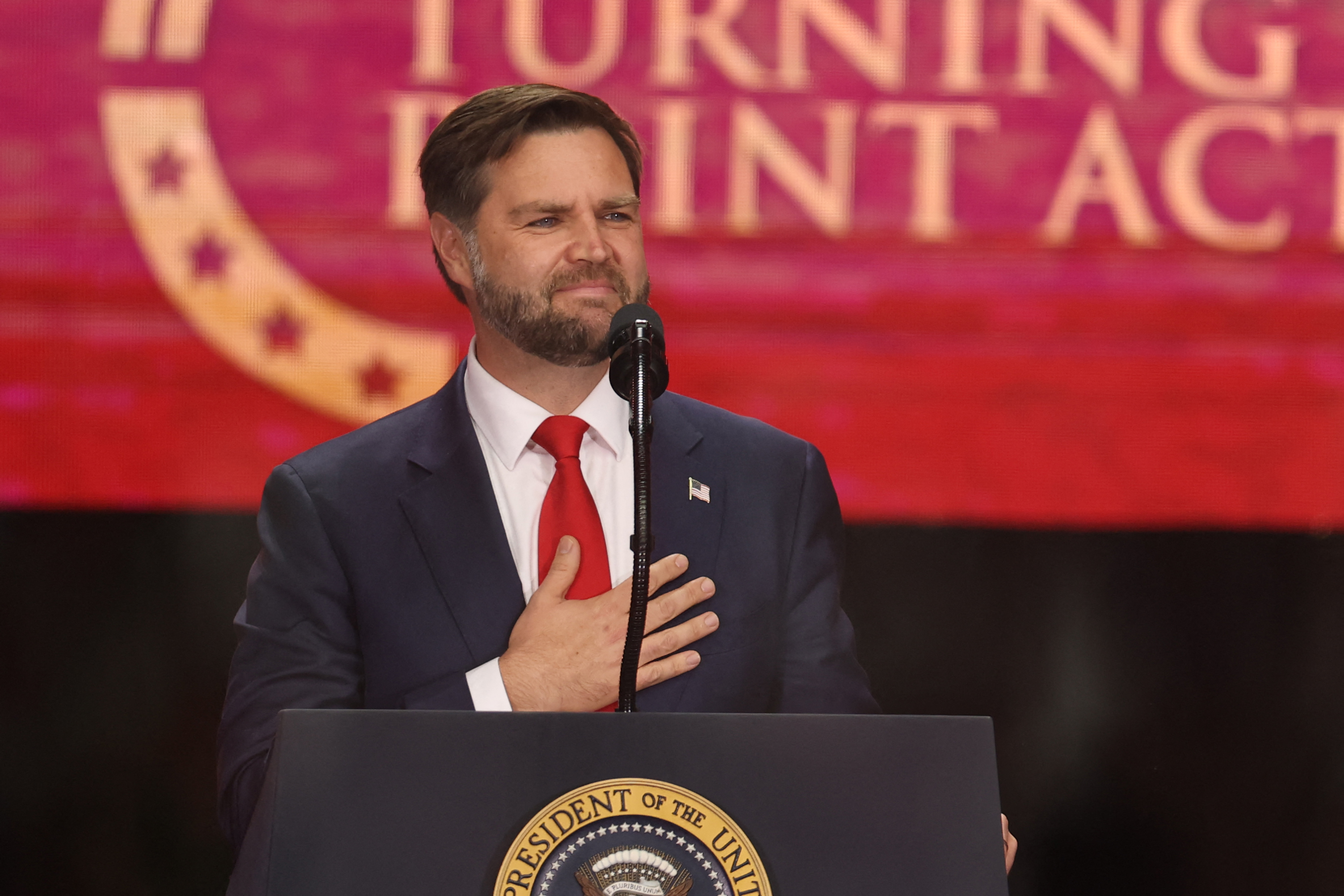
The Department of Homeland Security classified the event as a Special Event Assessment Rating (SEAR) Level 1, a designation reserved for occasions like the Super Bowl or the Boston Marathon. Intelligence briefings had flagged “multiple threats of unknown credibility,” particularly targeting President Donald Trump, Vice President J. D. Vance, and members of the Kirk family.
The heightened security was visible everywhere. Attendees passed through metal detectors, and Secret Service agents lined the stadium walls. Even the podium on stage appeared to be shielded with bulletproof glass — a chilling reminder of the violence that had brought everyone together.
A Nation in Mourning
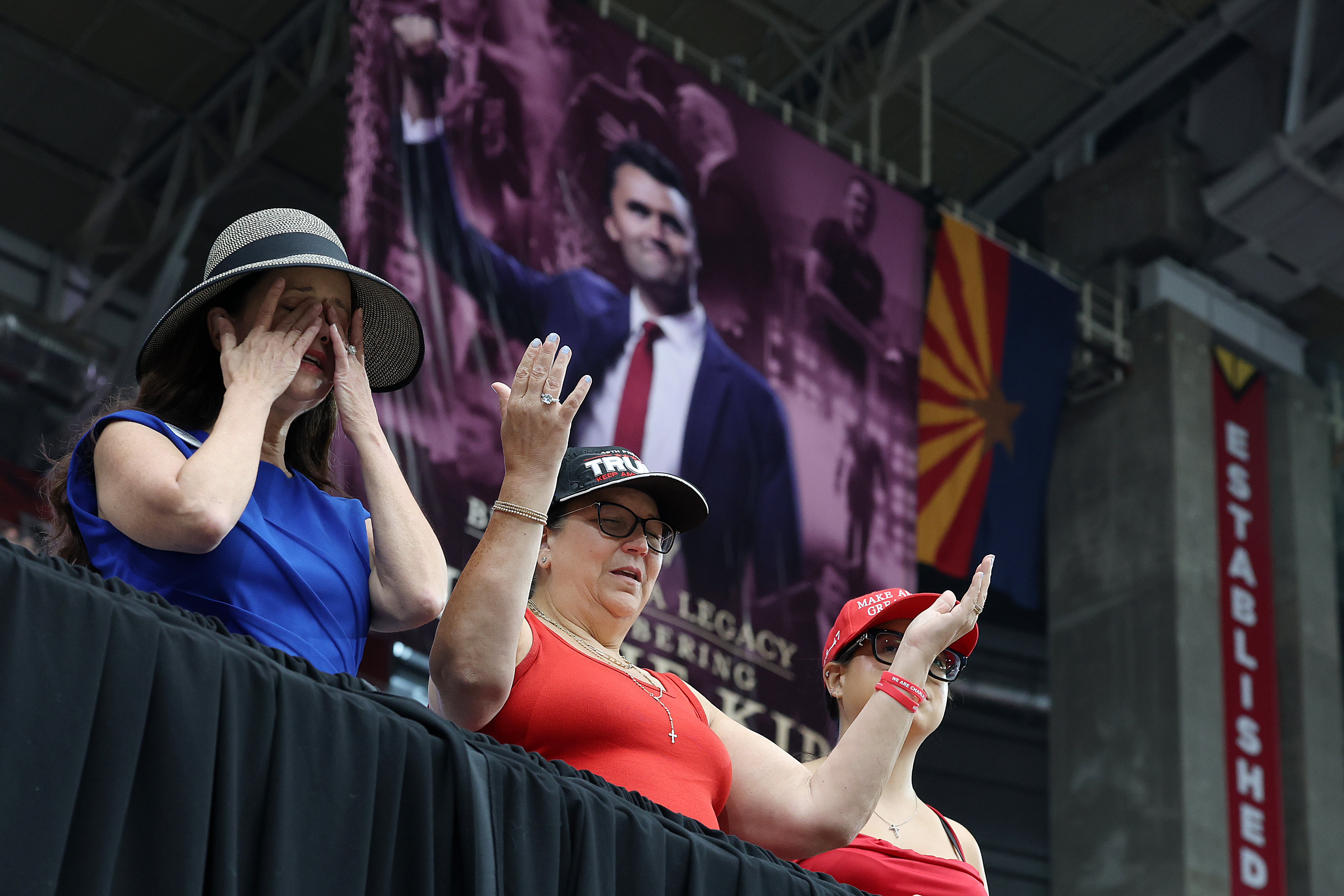
From the moment mourners entered, the tone was unmistakable. Tears streamed down faces, strangers clasped hands in prayer, and thousands lifted placards reading, “Well done, good and faithful servant — Charlie Kirk, 1993–2025” and “This is our turning point.”
A massive wooden cross was wheeled into the stadium before the service began, anchoring the event in Christian symbolism. Choirs sang hymns as the crowd swelled into the tens of thousands. Online, over 100,000 viewers tuned into the livestream titled “Building a Legacy: Remembering Charlie Kirk.”
Voices of Tribute

The memorial drew a who’s who of conservative and political figures. Among those who spoke were:
-
Tucker Carlson, who called Kirk “a generational warrior for truth.”
-
Secretary of State Marco Rubio, who praised Kirk’s “unyielding defense of faith and family.”
-
Health and Human Services Secretary Robert Kennedy Jr., who framed Kirk’s death as a national wake-up call.
-
Tulsi Gabbard, Director of National Intelligence, who described Kirk as “a fighter who never backed down, even in the face of overwhelming opposition.”
-
Vice President J. D. Vance, who emphasized that Kirk’s influence would endure long after his death.
-
Donald Trump Jr., who described Kirk as “a brother in arms to every young conservative across America.”
The words varied in tone — some combative, others deeply emotional — but all pointed to the same message: Charlie Kirk had become larger than life, and in death, he would be remembered as a martyr for conservative America.
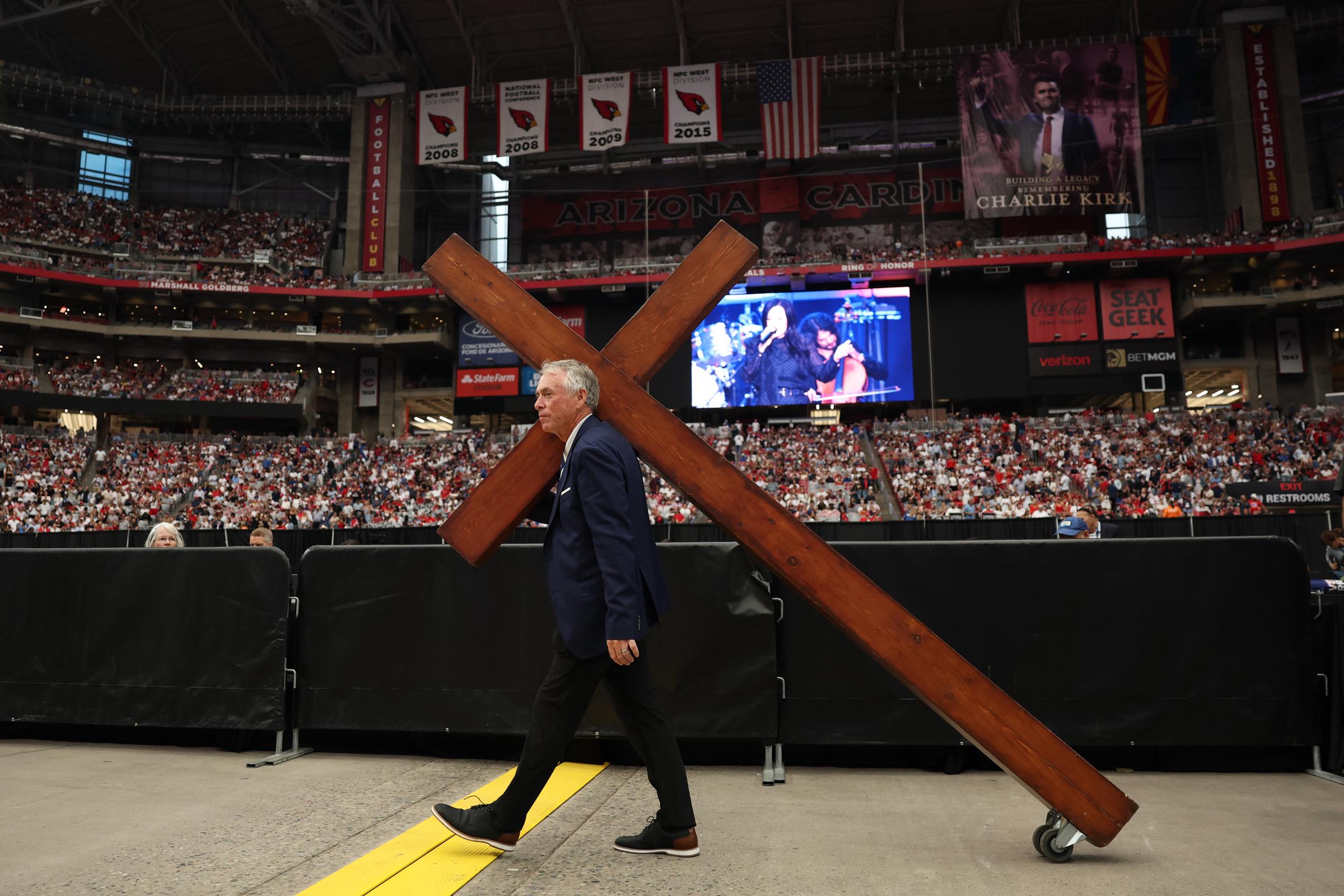
Erika Kirk: A Widow’s Forgiveness
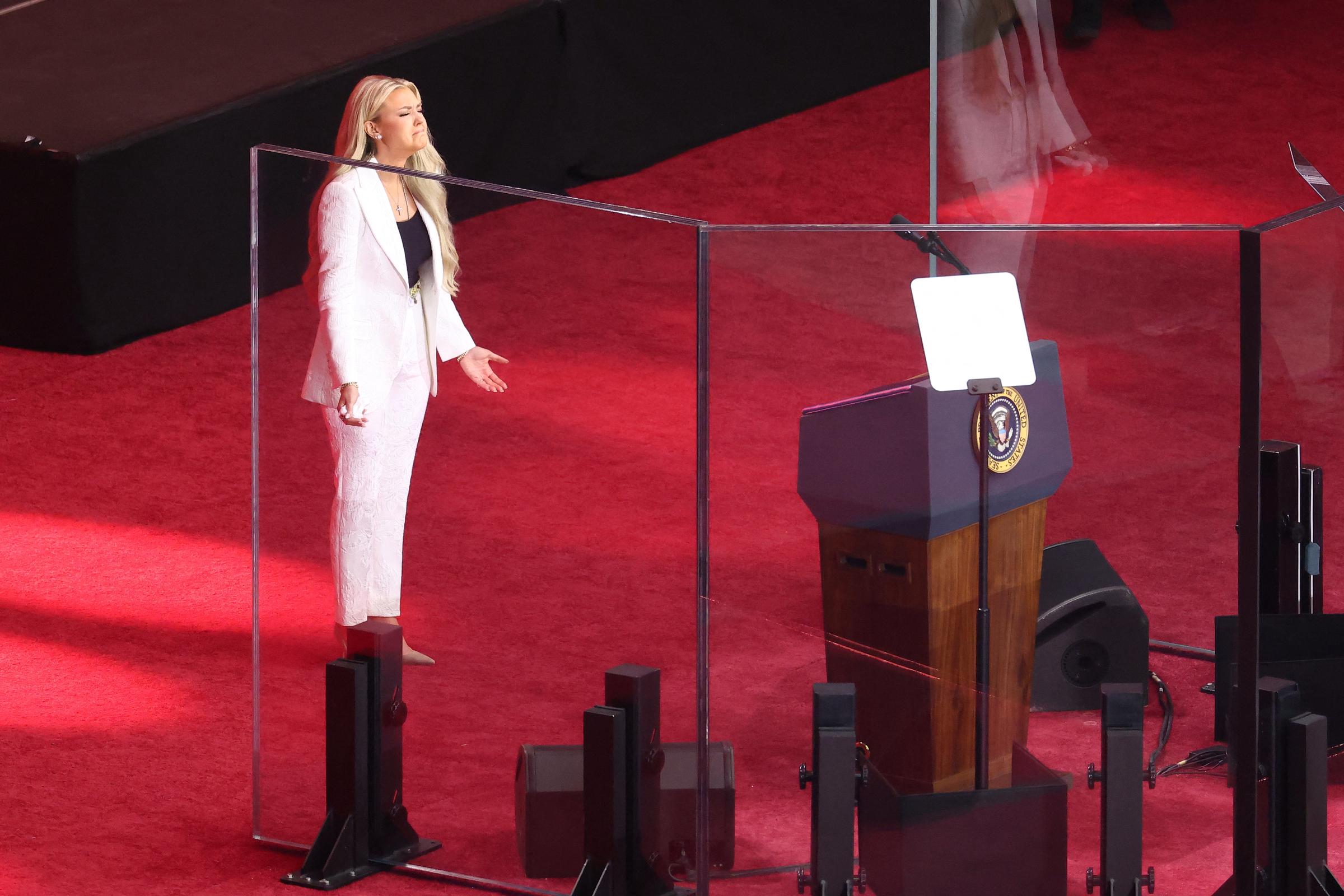
The most emotional moment of the day came when Erika Kirk, Charlie’s widow, took the stage. Trembling, but resolute, she addressed the crowd with a message that stunned the stadium into silence.
“My husband wanted to save young men, even men like the one who took his life,” she said. “And so, I forgive him. Because that is what Christ did. And that is what Charlie would have done.”
The audience rose in a standing ovation as Erika wiped away tears. Her words — “The answer to hate is not hate” — spread rapidly across social media, hailed as both an act of faith and a call for healing.
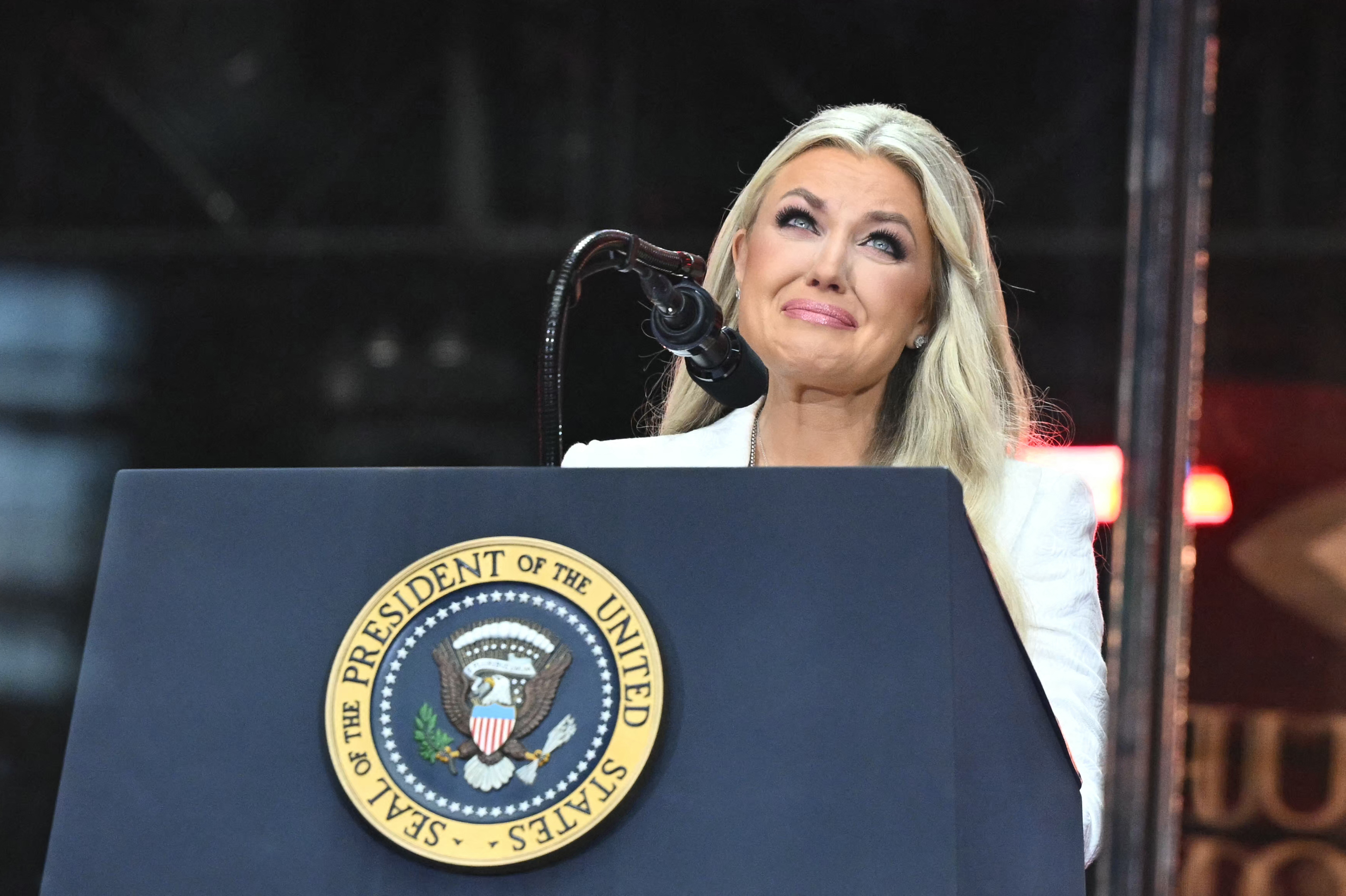
She also revealed a haunting detail from the surgeon who had tried to save her husband: Charlie had not suffered. “The doctor told me it was so instant that nothing could have been done, even if he had been shot inside the operating room itself,” she said. “There was no pain, no fear. One moment he was speaking truth, and the next he was with his Savior.”
Trump’s Fiery Tribute
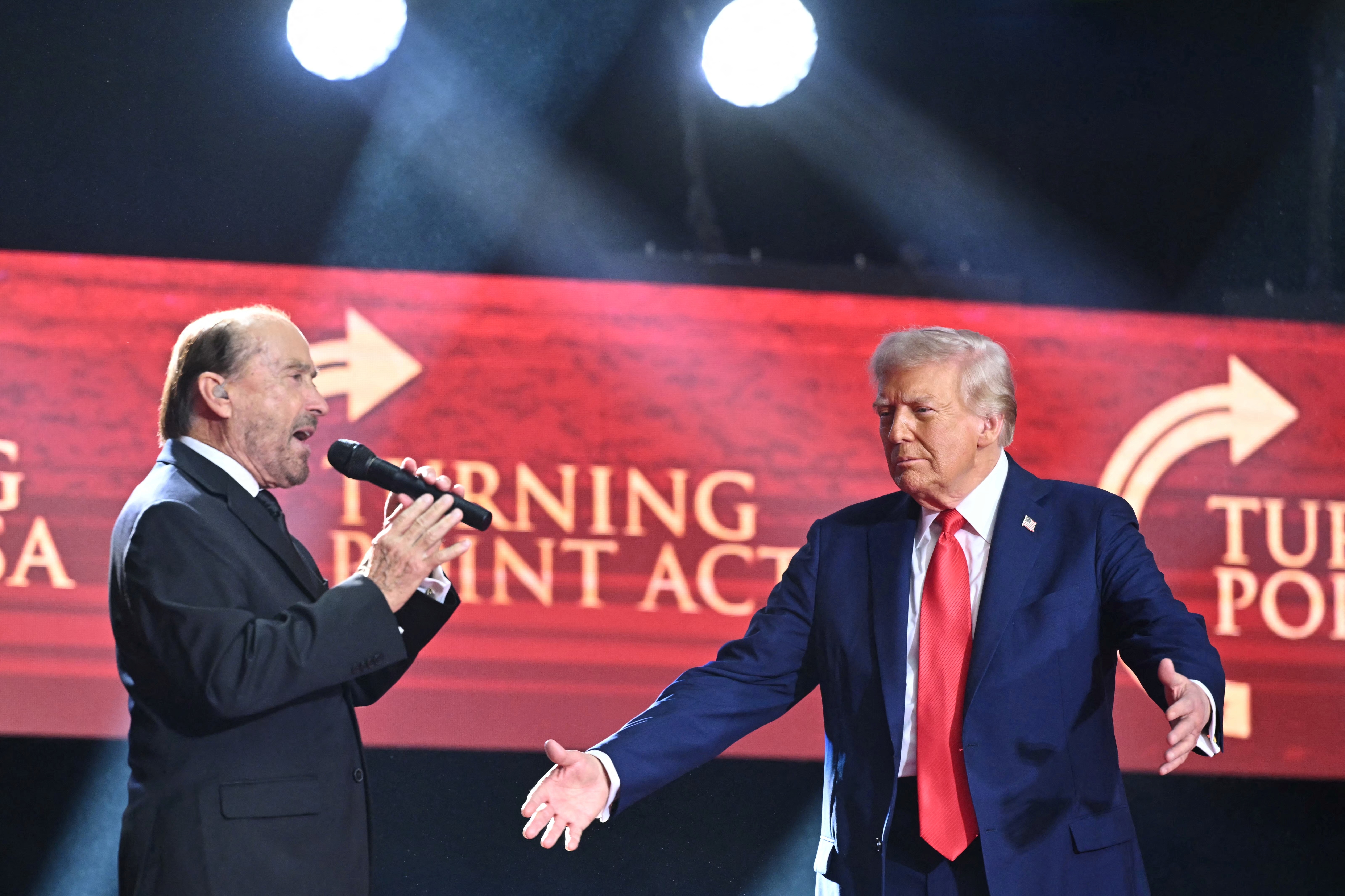
President Donald Trump delivered the closing remarks, blending eulogy with political fervor.
“I know I speak for everyone here when I say none of us will ever forget Charlie Kirk — and neither will history,” he declared. Calling Kirk “our greatest evangelist for American liberty,” Trump insisted, “Charlie Kirk is now immortal.”
Photographs showed Trump embracing Erika Kirk afterward, comforting her with whispered words that managed to draw a faint smile through her grief.
Musk and Trump Reunite
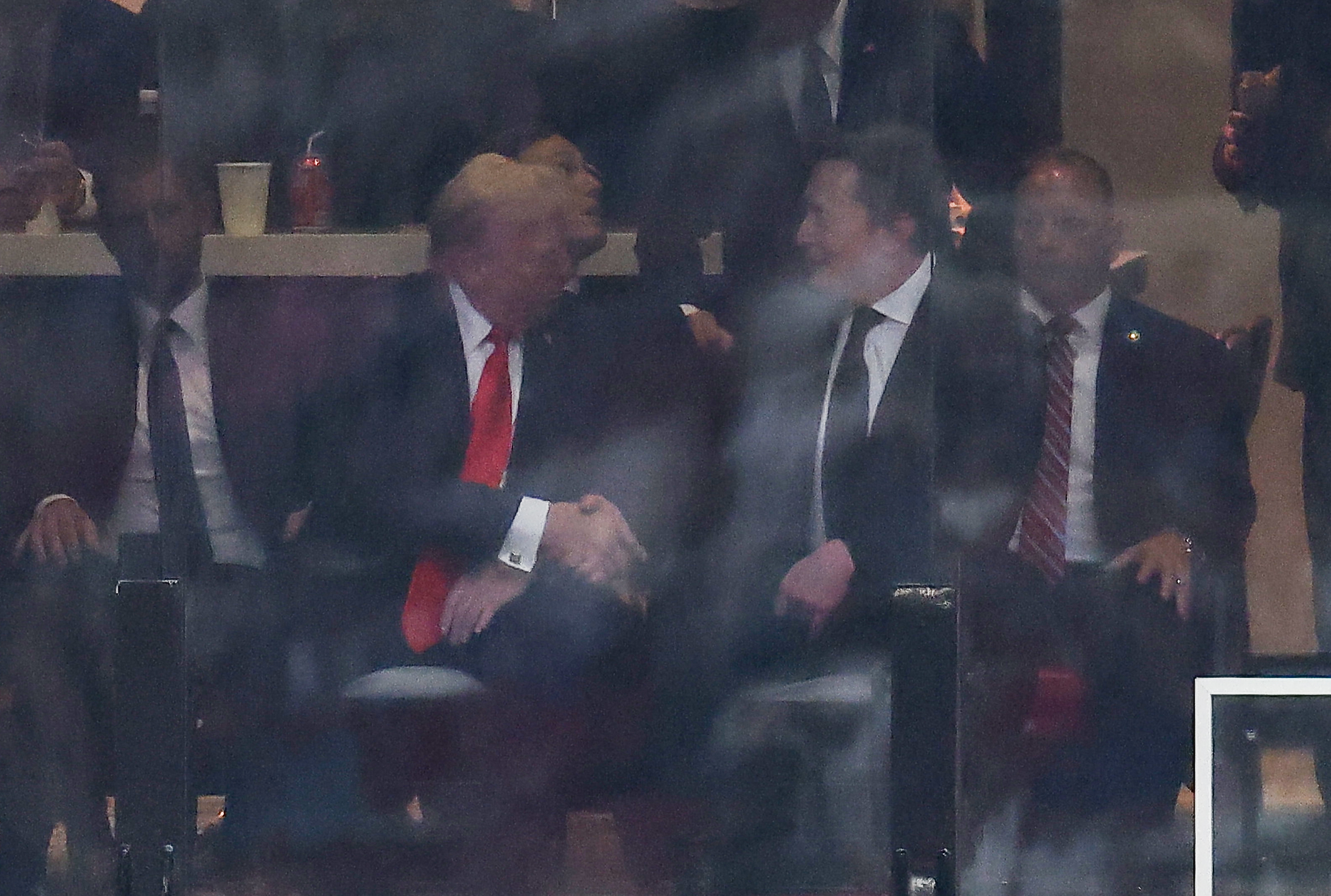
Yet perhaps the most surprising moment of the day came off the podium. In a private suite, Donald Trump and Elon Musk were seen talking — and even laughing — after months of public feuding.
Lip reader Nicola Hickling later claimed Trump leaned toward Musk and said, “So Elon, I’ve heard you wanted to chat. Let’s figure out how to get back on track. I’ve missed you.” Musk nodded in agreement.
The brief exchange was interpreted as a symbolic reconciliation — a reminder that Kirk’s death had, at least for a moment, pulled unlikely figures together.
Billionaire Silenced by Grief

While Trump thundered and Erika inspired, Musk appeared subdued. Photographs captured him sitting stiffly among mourners, his expression somber, his eyes downcast. At times he seemed close to tears.
Though he never addressed the crowd, his presence alone underscored the reach of Kirk’s influence — a figure who, despite controversies, commanded the attention of both political leaders and cultural titans.
A Legacy and a Mirror of America
The memorial service ultimately revealed as much about America as it did about Charlie Kirk. It was a day of contrasts: towering political speeches and intimate family grief, partisan fervor and messages of forgiveness, fiery defiance and unexpected reconciliation.
For some, Kirk’s death marked the silencing of a powerful voice; for others, it cemented his place as a cultural martyr. Yet all agreed his absence leaves a void in the nation’s conservative movement.
As Erika Kirk said through tears, “Charlie died with incomplete work, but not with unfinished business.”
Whether the unity glimpsed inside State Farm Stadium endures is uncertain. But for one extraordinary day, a nation paused — to weep, to argue, to forgive, and to remember a young man whose life and death will echo far beyond the stadium walls.

Adrian Hawthorne is a celebrated author and dedicated archivist who finds inspiration in the hidden stories of the past. Educated at Oxford, he now works at the National Archives, where preserving history fuels his evocative writing. Balancing archival precision with creative storytelling, Adrian founded the Hawthorne Institute of Literary Arts to mentor emerging writers and honor the timeless art of narrative.
